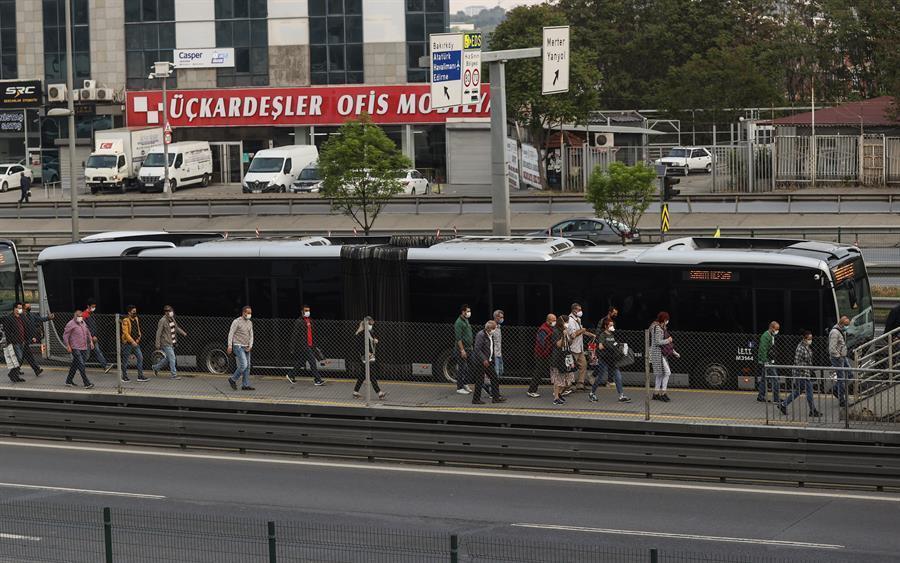
Turkey emerged from a 17-day-long lockdown on May 17 and moved to a period of gradual lifting that will last until June 1.
The government imposed the nationwide lockdown, which remained in place from April 29 until May 17 including the three-day Eid al-Fitr holiday, after COVID-19 cases and fatalities from the pandemic hit record highs in April.
The number of daily infections has been declining steadily since the lockdown came into force. They first dropped to around 20,000 in early May and continued their descent to a little more than 10,000 cases on May 16.
Experts, however, are warning that the gradual normalization should not result in complacency among the public, saying that if people ignore the anti-virus rules, infections will pick up in the coming weeks.
“Thanks to the restrictions, the infections will continue to decline. We have to be very careful,” said Professor Derya Mutlu from Akdeniz University’s Medical School.
He particularly cautioned against the variants of COVID-19, noting that 90 out of 100 cases identified at their laboratories are the U.K. strain of the virus.
“Do not go to shopping malls, avoid family and other home visits,” Mutlu said.
As part of the gradual normalization measures, shopping malls will be able to operate from 10 a.m. to 8 p.m. on weekdays, but will be closed on weekends.
During the new phase, weekdays will see night curfews from 9 p.m. to 5 a.m., while weekends will be under full lockdown.
Cafes and restaurants will provide takeaway and delivery services only on weekdays from 7 a.m. to 8 p.m., and on weekends, delivery services only from 7 a.m. to midnight.
Intercity travel will be allowed outside of the curfew days and hours.
There will be no special restrictions on people aged 65 and over who have taken two doses of COVID-19 vaccines or those under 18.
Experts also suggested that the pandemic will become more manageable during the summer if inspections remain tight, and normalization unfolds in a controlled manner and if the vaccination drive gains momentum.
If some 30 million doses of the COVID-19 jabs can be administered in June and July, the number of daily cases may be contained between 10,000 and 15,000, they said, adding that the health infrastructure can cope with this caseload, but daily infections at around 20,000 will overstretch hospitals.
They, however, reckoned that as people start to gather and mobility increases, infections are expected to climb again a week after the normalization.
Turkey has administered more than 26 million doses of the virus vaccine since it rolled out its vaccination program on Jan. 14. Nearly 15 million people have received the first dose of the vaccine, while more than 11 million people have been given both doses.